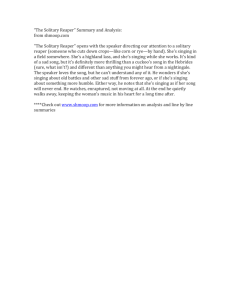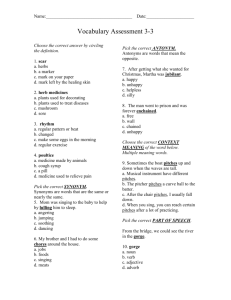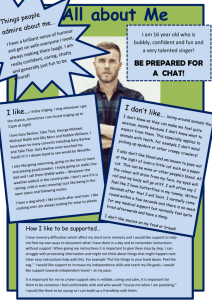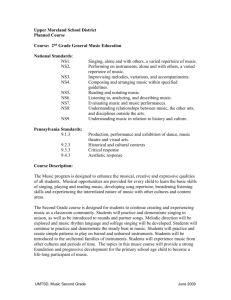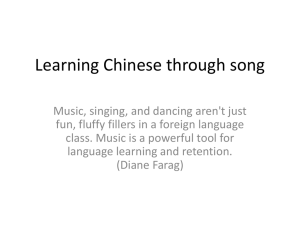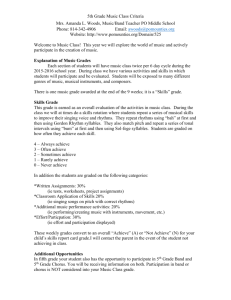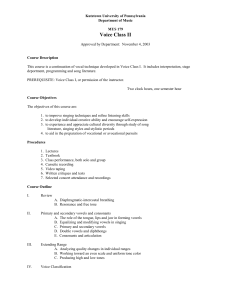Lesson Planning and Objective Writing
advertisement
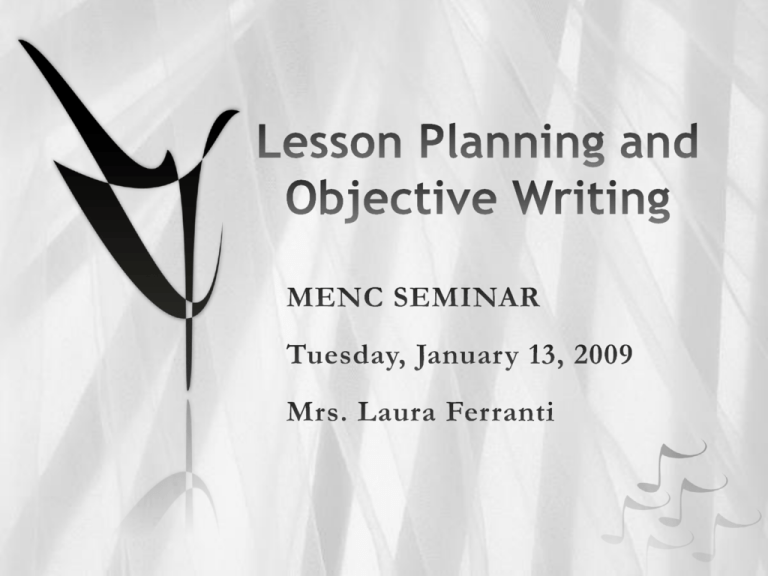
Mark of excellent teaching – The most effective teachers are planners and thinkers. “Fail to plan, plan to fail.” Don’t dread the process of lesson planning. Embrace the opportunity to think thoughtfully about each step of the teaching process and look at the big picture! Public school principals are required to collect and examine lesson plans on a weekly, monthly, or quarterly basis. An assessment tool is used for the evaluation. Ask ahead of time for the assessment tool to ensure that you meet all of the requirements. A teacher’s detailed description of the course of instruction for an individual lesson The purpose of a lesson plan is to communicate. To whom? YOU! The lesson plans you develop are to guide you in organizing your material and yourself for the purpose of helping your students achieve intended learning outcomes. While there are many different formats for a lesson plan, there are essential components that all lesson plans should include. • • • • • • • • • Outcomes or objectives for students that teachers predict will occur as a result of lesson delivery. Goals may include student mastery of concepts, content, values, social skills, appropriate behavior, and others. • "Goals" should be understood to mean the desired learning outcomes or objectives for the lesson that will be observed. Goals may be expressed in various formats and terminology. It is critical, however, that goals-what the teacher wants the student to learn-be clearly distinguished from activities-what the teacher wants the students to do. • Typically, a 30-45 minute music lesson (all areas) will have 2-3 overarching goals listed in the “objectives” section of the lesson plan. What are the National Standards? 1. Singing, alone and with others, a varied repertoire of music. 2. Performing on instruments, alone and with others, a varied repertoire of music. 3. Improvising melodies, variations, and accompaniments. 4. Composing and arranging music within specified guidelines. 5. Reading and notating music. 6. Listening to, analyzing, and describing music. 7. Evaluating music and music performances. 8. Understanding relationships between music, the other arts, and disciplines outside the arts. 9. Understanding music in relation to history and culture. • A well-thought out lesson plan touches on several of the National Standards. You should ask yourself the following questions before completing the materials section of a lesson plan: • What items and supplies will be needed by both the instructor and the students in order to accomplish the stated learning objectives? • What equipment will I need in order to utilize as many learning modalities as possible? (visual, audio, tactile, kinesthetic, etc.) • How can I use materials creatively? What can I borrow from other teachers? • Keep in mind that modeling and the use of hands-on materials are especially effective in demonstrating concepts and skills to students. Look for ways to make the learning goals concrete, tangible, and relevant to students. • The materials section will not be presented to students directly, but rather is written for the teacher's own reference and as a checklist before starting the lesson. Set the stage for your students by tapping into their prior knowledge and giving the objectives a context Here are some ideas for how to start your lesson: • Consider having the students begin class by singing a “Hello Song” or singing a melodic pattern to take attendance (general music) • Either verbally state or have the learning goals/objectives written down and go over them before starting the class (all areas) • Have students perform a series of warm-up exercises (band and choir) • Ask students to recall material that was learned in the previous lesson before tackling new material. Be creative with how you conduct review sessions. (all areas) The procedure section is where you will explicitly describe how you will present the lesson's concepts to your students. Here are a few things to keep in mind as you complete this section of your lesson plan: • Detail, detail, detail! Write this section in so much detail that another music educator could teach the lesson plan the way in which you intended it to be taught. • The section will be lengthy. You will be thankful that you have spent so much time thinking about every step of your lesson. • It is okay to refer to your procedure section throughout the lesson to make sure you are following the sequence you had planned. Evaluation or assessment strategies are those methods that teachers use to answer the question, "How do you know what the students will have learned as a result of today's lesson?" Teachers typically employ a variety of evaluation strategies, including quizzes, oral or written exams, self-checking materials, and observing the accuracy of student responses to teacher questions, to name a few. Things to keep in mind: • Evaluation strategies must be aligned with, and reflect, the goals of the lesson. • A plan for evaluation of student learning may include one or more formats. • Evaluation must be systematic. That is, it must provide the teacher with useful information about the extent to which the instructional goals-whether individual or group-have been met. • Evaluation strategies must be appropriate for the students. Teachers may need to use a variety of strategies to evaluate student learning. Consider students with special needs, students with limited English proficiency, etc. before creating your evaluation strategies. The closure section provides a fitting conclusion and context for the student learning that has taken place. • Closure is the time when you wrap up a lesson plan and help students organize the information into a meaningful context in their minds. • A brief summary or overview is often appropriate. • It is not enough to say, “Does anyone have any questions?” Look for ways to add some insight and/or context to the lesson. Also, be sure to clear up any areas of confusion. • Consider engaging students in a quick discussion about what exactly they learned and what it means to them now. • Use the closure as an opportunity to encourage your students and give them an idea of what they will learn in the next class. • You may have to alter your extension based upon your students’ performance on assessment activities. You should have a general idea, though, of what you want your students to accomplish in subsequent lessons. • If the learning objectives were not adequately achieved, you will need to revisit the lesson in a different manner. • Student performance informs future lessons and where you will take your students next. Remember the definition of “objectives” or “goals…” The desired learning outcomes that are observable and measurable The objectives for the lesson plan are drawn from the broader aims of the unit plan but are achieved over a well defined time period. Ask yourself these questions when formulating objectives for your lesson: • What will students be able to do during this lesson? • Under what conditions will students' performance be accomplished? • What is the degree or criterion on the basis of which satisfactory attainment of the objectives will be judged? • How will students demonstrate that they have learned and understood the objectives of the lesson? Your call… Are the following well-written objectives? The students will be able to sight-sing a piece of music containing the pitches sol, la, and mi and quarter note and eighth note rhythms successfully. The students will sing the song “My Popcorn” with correct pitches, rhythms, and words. The students will be able to work well together in small groups to create and perform movements to dramatize the lyrics of a song. The students will evaluate swing music. The students will describe three specific ways in which Native American culture fits into the “melting pot” of American culture. The students will go on a walking field trip of the school. Six Common Mistakes in Writing Lesson Plans http://www.adprima.com/mistakes.htm Lesson Plans the Easy Way http://www.adprima.com/easyless.htm Top 8 Components of a Well-Written Lesson Plan http://k6educators.about.com/od/lessonplanheadquarters/ tp/8_steps_lp.htm Online Supplement to Pathwise Training http://www.bgsu.edu/colleges/edhd/programs/MentorNet /HomePage.html
